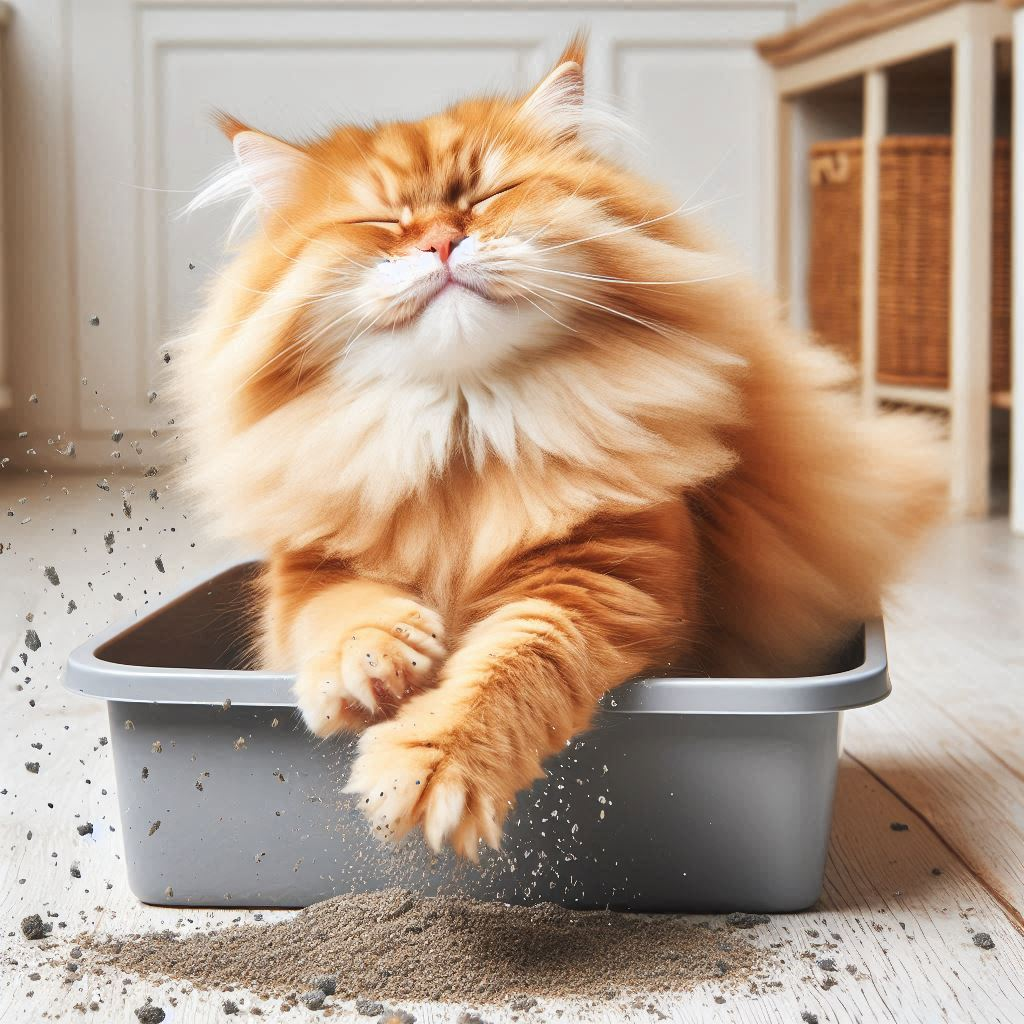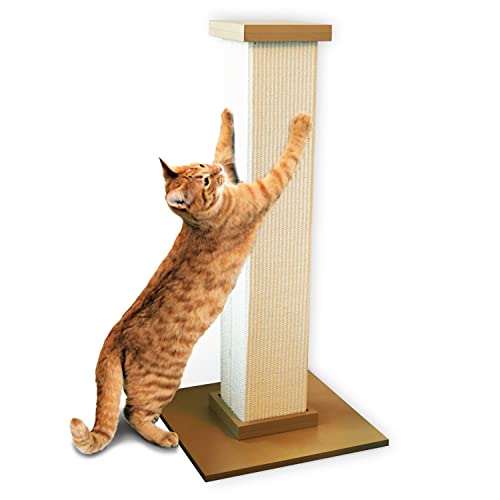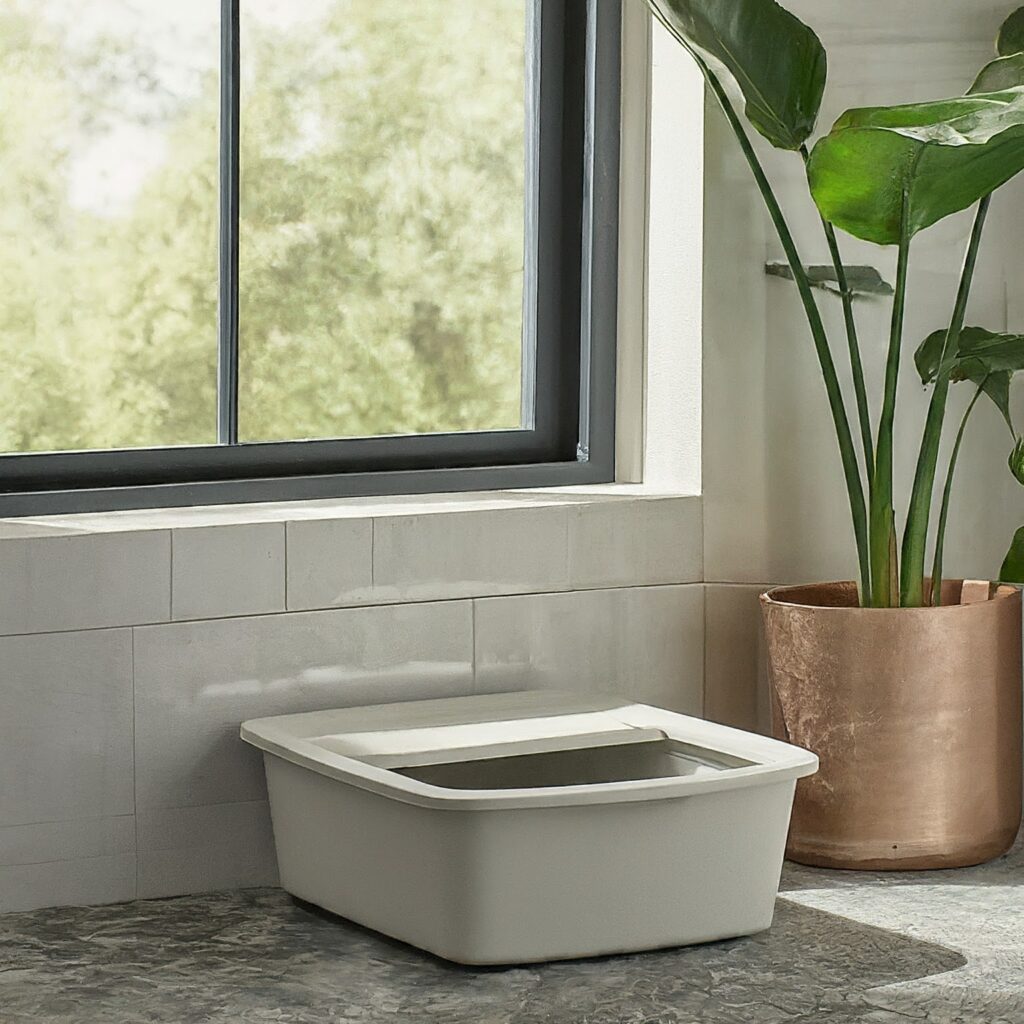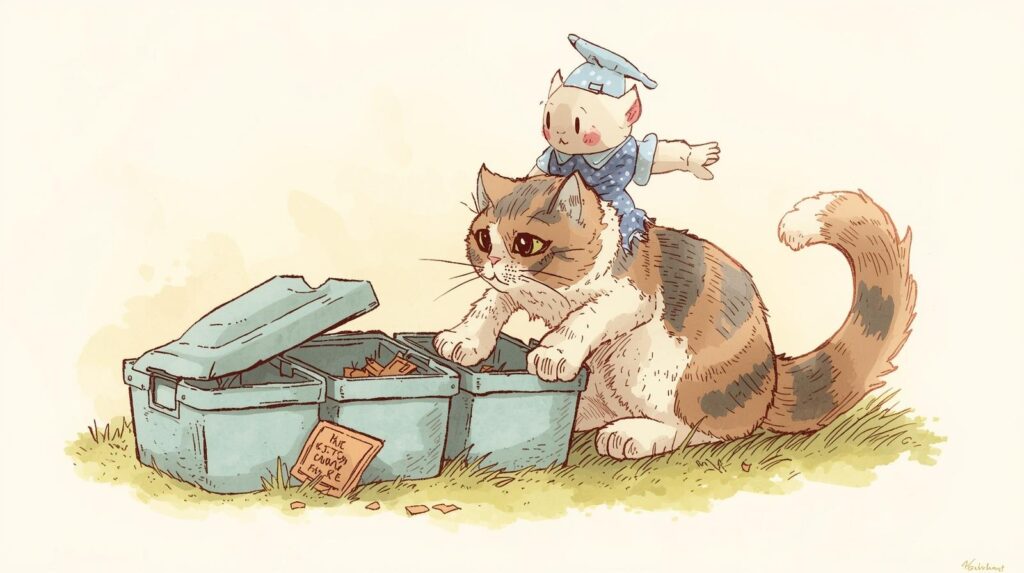Introduction
Cats are fascinating creatures with behaviors that sometimes perplex their owners. One such behavior is excessive scratching in the litter box.

While scratching is a natural instinct for cats, excessive scratching can indicate underlying issues. In this blog, we will explore the reasons behind this behavior and provide practical solutions to help your feline friend.
Table of Contents
Cat Scratching Behavior
Scratching is an instinctual behavior for cats. It serves several purposes:
- Marking Territory: Cats have scent glands in their paws, and scratching helps mark their territory with both visual and scent markers.
- Sharpening Claws: Scratching removes the outer sheath of the claws, keeping them sharp and healthy.
- Stretching Muscles: Scratching provides a good stretch for cats, promoting flexibility and muscle health.
However, when scratching becomes excessive, especially in the litter box, it can be a sign of something more.
Reasons for Excessive Scratching in the Litter Box
1. Uncomfortable Litter
One of the most common reasons cats scratch excessively in their litter box is discomfort with the litter itself. Cats can be particular about the texture and scent of the litter. If the litter is too rough, dusty, or has a strong odor, your cat might scratch more to try and find a comfortable spot or to cover their waste more thoroughly.
Related post: Maggots in Cat Litter Boxes: Causes, Prevention, and Solution
Solution: Try changing the type of litter. Opt for a softer, unscented, and clumping variety. Some cats prefer natural litters made from materials like corn, wheat, or pine.
2. Dirty Litter Box
Cats are clean animals and prefer a spotless litter box. If the box is not cleaned regularly, they might scratch excessively to find a clean area or to express their frustration.
Solution: Clean the litter box daily. Scoop away waste and replace soiled litter. Deep clean the box with mild soap and water once a week.
Also Read: can bed bugs live in cat litter
3. Litter Box Size and Depth
A litter box that is too small or shallow might not provide enough space for your cat to move around comfortably. This can lead to excessive scratching as your cat tries to find an ideal position.
Interesting post: Comprehensive Guide to Storing Cat Litter
Solution: Ensure the litter box is large enough for your cat. A general rule is that the box should be one and a half times the length of your cat. The litter depth should be around 2-3 inches.
4. Medical Issues
Excessive scratching can sometimes indicate medical issues such as urinary tract infections, bladder stones, or other health problems that cause discomfort when using the litter box.
Solution: If you notice other signs like frequent urination, blood in the urine, or your cat appearing in pain, consult your veterinarian immediately.
5. Stress and Anxiety
Cats can be sensitive to changes in their environment. Moving to a new home, the introduction of a new pet, or even a change in routine can cause stress and anxiety, leading to excessive scratching in the litter box.
Solution: Identify and minimize stressors in your cat’s environment. Provide a safe and quiet space for your cat to retreat. Use calming products like pheromone diffusers or sprays to help reduce anxiety.
6. Instinctual Behavior
Sometimes, excessive scratching is just a part of your cat’s natural behavior. They might be digging and covering their waste more vigorously due to instinctual habits.
Interesting post: cat pee turns litter to mud
Solution: Observe your cat’s behavior. If there are no signs of distress or medical issues, and the scratching doesn’t lead to damage or excessive mess, it might just be their natural behavior.
7. Paw Cleaning
After using the litter box, cats might scratch excessively as a way to clean their paws. Litter can get stuck in their paws, and scratching helps dislodge it.
Solution: Ensure the litter is fine and not too sticky. Regularly check your cat’s paws and gently clean them if needed to prevent litter from getting stuck.
8. Territory Marking with Scent Glands
Cats have scent glands in their paws, and they use scratching as a way to mark their territory. Excessive scratching in the litter box can be an attempt to reinforce their territory with their scent.
Solution: Provide multiple scratching posts and pads around the house to allow your cat to mark their territory in other areas, reducing the need to do so in the litter box.
Practical Tips to Minimize Excessive Scratching
Provide Multiple Litter Boxes: If you have multiple cats, ensure you have enough litter boxes. A good rule of thumb is one box per cat plus one extra.
Here are top 3 litter boxes:
Place Litter Boxes in Quiet Areas: Cats prefer privacy when doing their business. Place litter boxes in quiet, low-traffic areas.
Use Litter Box Liners with Caution: Some cats dislike litter box liners as they can interfere with their digging. Experiment with and without liners to see what your cat prefers.
Offer Alternative Scratching Areas: Provide scratching posts and pads around your home. This can help redirect their scratching behavior away from the litter box.
Regular Vet Check-ups: Ensure your cat has regular veterinary check-ups to rule out any underlying health issues.
Conclusion
Excessive scratching in the litter box can be perplexing and frustrating, but understanding the reasons behind this behavior can help you find effective solutions. By ensuring your cat’s litter box is comfortable, clean, and in a suitable location, and by addressing any potential health or stress-related issues, you can help your cat feel more at ease. Remember, a happy cat makes for a happy home.
Common Questions About Cats Scratching the Litter Box
Q: Why does my cat scratch the litter box excessively after using it?
A: Excessive scratching after using the litter box can be due to dissatisfaction with the litter, a desire to bury waste thoroughly, or simply instinctual behavior.
Q: Can the type of litter affect my cat’s scratching behavior?
A: Yes, cats can be picky about the texture and scent of their litter. Switching to a softer, unscented, and clumping variety might reduce excessive scratching.
Q: Is excessive scratching in the litter box a sign of a medical issue?
A: It can be. If accompanied by other symptoms like frequent urination, blood in the urine, or signs of pain, consult a veterinarian.









